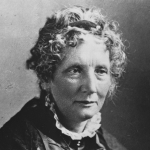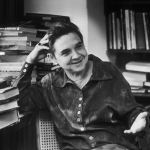Sweet Auburn, loveliest village of the plain,
Where health and plenty cheared the labouring swain,
Where smiling spring its earliest visit paid,
And parting summer's lingering blooms delayed,
Dear lovely bowers of innocence and ease,
Seats of my youth, when every sport could please,
How often have I loitered o'er thy green,
Where humble happiness endeared each scene!
How often have I paused on every charm,
The sheltered cot, the cultivated farm,
The never-failing brook, the busy mill,
The decent church that topt the neighbouring hill,
The hawthorn bush, with seats beneath the shade,
For talking age and whispering lovers made!
How often have I blest the coming day,
When toil remitting lent its turn to play,
And all the village train, from labour free,
Led up their sports beneath the spreading tree,
While many a pastime circled in the shade,
The young contending as the old surveyed;
And many a gambol frolicked o'er the ground,
And slights of art and feats of strength went round;
And still as each repeated pleasure tired,
Succeeding sports the mirthful band inspired;
The dancing pair that simply sought renown
By holding out to tire each other down;
The swain mistrustless of his smutted face,
While secret laughter tittered round the place;
The bashful virgin's side-long looks of love,
The matron's glance that would those looks reprove!
These were thy charms, sweet village; sports like these,
With sweet succession, taught even toil to please;
These round thy bowers their chearful influence shed,
These were thy charms—But all these charms are fled.
Sweet smiling village, loveliest of the lawn,
Thy sports are fled, and all thy charms withdrawn;
Amidst thy bowers the tyrant's hand is seen,
And desolation saddens all thy green:
One only master grasps the whole domain,
And half a tillage stints thy smiling plain;
No more thy glassy brook reflects the day,
But, choaked with sedges, works its weedy way;
Along thy glades, a solitary guest,
The hollow-sounding bittern guards its nest;
Amidst thy desert walks the lapwing flies,
And tires their echoes with unvaried cries.
Sunk are thy bowers, in shapeless ruin all,
And the long grass o'ertops the mouldering wall;
And, trembling, shrinking from the spoiler's hand,
Far, far away, thy children leave the land.
Ill fares the land, to hastening ills a prey,
Where wealth accumulates, and men decay:
Princes and lords may flourish, or may fade;
A breath can make them, as a breath has made;
But a bold peasantry, their country's pride,
When once destroyed, can never be supplied.
A time there was, ere England's griefs began,
When every rood of ground maintained its man;
For him light labour spread her wholesome store,
Just gave what life required, but gave no more:
His best companions, innocence and health;
And his best riches, ignorance of wealth.
But times are altered; trade's unfeeling train
Usurp the land and dispossess the swain;
Along the lawn, where scattered hamlets rose,
Unwieldy wealth and cumbrous pomp repose;
And every want to oppulence allied,
And every pang that folly pays to pride.
Those gentle hours that plenty bade to bloom,
Those calm desires that asked but little room,
Those healthful sports that graced the peaceful scene,
Lived in each look, and brightened all the green;
These, far departing seek a kinder shore,
And rural mirth and manners are no more.
Sweet Auburn! parent of the blissful hour,
Thy glades forlorn confess the tyrant's power.
Here as I take my solitary rounds,
Amidst thy tangling walks, and ruined grounds,
And, many a year elapsed, return to view
Where once the cottage stood, the hawthorn grew,
Remembrance wakes with all her busy train,
Swells at my breast, and turns the past to pain.
In all my wanderings round this world of care,
In all my griefs—and god has given my share—
I still had hopes, my latest hours to crown,
Amidst these humble bowers to lay me down;
To husband out life's taper at the close,
And keep the flame from wasting by repose.
I still had hopes, for pride attends us still,
Amidst the swains to shew my book-learned skill,
Around my fire an evening groupe to draw,
And tell of all I felt, and all I saw;
And, as an hare whom hounds and horns pursue,
Pants to the place from whence at first she flew,
I still had hopes, my long vexations past,
Here to return—and die at home at last.
O blest retirement, friend to life's decline,
Retreats from care that never must be mine,
How happy he who crowns, in shades like these
A youth of labour with an age of ease;
Who quits a world where strong temptations try,
And, since 'tis hard to combat, learns to fly!
For him no wretches, born to work and weep,
Explore the mine, or tempt the dangerous deep;
No surly porter stands in guilty state
To spurn imploring famine from the gate,
But on he moves to meet his latter end,
Angels around befriending virtue's friend;
Bends to the grave with unperceived decay,
While resignation gently slopes the way;
And, all his prospects brightening to the last,
His heaven commences ere the world be past!
Sweet was the sound, when oft at evening's close,
Up yonder hill the village murmur rose;
There, as I past with careless steps and slow,
The mingling notes came soften'd from below;
The swain responsive as the milk-maid sung,
The sober herd that lowed to meet their young,
The noisy geese that gabbled o'er the pool,
The playful children just let loose from school,
The watch-dog's voice that bayed the whispering wind,
And the loud laugh that spoke the vacant mind,
These all in sweet confusion sought the shade,
And filled each pause the nightingale had made.
But now the sounds of population fail,
No cheerful murmurs fluctuate in the gale,
No busy steps the grass-grown foot-way tread,
For all the bloomy flush of life is fled.
All but yon widowed, solitary thing
That feebly bends beside the plashy spring;
She, wretched matron, forced in age, for bread,
To strip the brook with mantling cresses spread,
To pick her wintry faggot from the thorn,
To seek her nightly shed, and weep till morn;
She only left of all the harmless train,
The sad historian of the pensive plain.
Near yonder copse, where once the garden smiled,
And still where many a garden-flower grows wild;
There, where a few torn shrubs the place disclose,
The village preacher's modest mansion rose.
A man he was, to all the country dear,
And passing rich with forty pounds a year;
Remote from towns he ran his godly race,
Nor e'er had changed, nor wished to change his place;
Unpractised he to fawn, or seek for power,
By doctrines fashioned to the varying hour;
Far other aims his heart had learned to prize,
More skilled to raise the wretched than to rise.
His house was known to all the vagrant train,
He chid their wanderings but relieved their pain;
The long-remembered beggar was his guest,
Whose beard descending swept his aged breast;
The ruined spendthrift, now no longer proud,
Claim'd kindred there, and had his claims allowed;
The broken soldier, kindly bade to stay,
Sate by his fire, and talked the night away;
Wept o'er his wounds, or, tales of sorrow done,
Shouldered his crutch, and shewed how fields were won.
Pleased with his guests, the good man learned to glow,
And quite forgot their vices in their woe;
Careless their merits, or their faults to scan,
His pity gave ere charity began.
Thus to relieve the wretched was his pride,
And even his failings leaned to Virtue's side;
But in his duty prompt at every call,
He watched and wept, he prayed and felt, for all.
And, as a bird each fond endearment tries,
To tempt its new-fledged offspring to the skies;
He tried each art, reproved each dull delay,
Allured to brighter worlds, and led the way.
Beside the bed where parting life was layed,
And sorrow, guilt, and pain, by turns, dismayed
The reverend champion stood. At his control
Despair and anguish fled the struggling soul;
Comfort came down the trembling wretch to raise,
And his last faltering accents whispered praise.
At church, with meek and unaffected grace,
His looks adorned the venerable place;
Truth from his lips prevailed with double sway,
And fools, who came to scoff, remained to pray.
The service past, around the pious man,
With steady zeal, each honest rustic ran;
Even children followed, with endearing wile,
And plucked his gown, to share the good man's smile.
His ready smile a parent's warmth exprest,
Their welfare pleased him, and their cares distrest:
To them his heart, his love, his griefs were given,
But all his serious thoughts had rest in Heaven.
As some tall cliff that lifts its awful form,
Swells from the vale, and midway leaves the storm,
Tho' round its breast the rolling clouds are spread,
Eternal sunshine settles on its head.
Beside yon straggling fence that skirts the way,
With blossomed furze unprofitably gay,
There, in his noisy mansion, skill'd to rule,
The village master taught his little school;
A man severe he was, and stern to view,
I knew him well, and every truant knew;
Well had the boding tremblers learned to trace
The day's disasters in his morning face;
Full well they laughed, with counterfeited glee,
At all his jokes, for many a joke had he:
Full well the busy whisper circling round,
Conveyed the dismal tidings when he frowned;
Yet he was kind, or if severe in aught,
The love he bore to learning was in fault;
The village all declared how much he knew;
'Twas certain he could write, and cypher too;
Lands he could measure, terms and tides presage,
And ev'n the story ran that he could gauge.
In arguing too, the parson owned his skill,
For even tho' vanquished, he could argue still;
While words of learned length and thundering sound,
Amazed the gazing rustics ranged around;
And still they gazed, and still the wonder grew,
That one small head could carry all he knew.
But past is all his fame. The very spot
Where many a time he triumphed, is forgot.
Near yonder thorn, that lifts its head on high,
Where once the sign-post caught the passing eye,
Low lies that house where nut-brown draughts inspired,
Where grey-beard mirth and smiling toil retired,
Where village statesmen talked with looks profound,
And news much older than their ale went round.
Imagination fondly stoops to trace
The parlour splendours of that festive place;
The white-washed wall, the nicely sanded floor,
The varnished clock that clicked behind the door;
The chest contrived a double debt to pay,
A bed by night, a chest of drawers by day;
The pictures placed for ornament and use,
The twelve good rules, the royal game of goose;
The hearth, except when winter chill'd the day,
With aspen boughs, and flowers, and fennel gay;
While broken tea-cups, wisely kept for shew,
Ranged o'er the chimney, glistened in a row.
Vain transitory splendours! Could not all
Reprieve the tottering mansion from its fall!
Obscure it sinks, nor shall it more impart
An hour's importance to the poor man's heart;
Thither no more the peasant shall repair
To sweet oblivion of his daily care;
No more the farmer's news, the barber's tale,
No more the woodman's ballad shall prevail;
No more the smith his dusky brow shall clear,
Relax his ponderous strength, and lean to hear;
The host himself no longer shall be found
Careful to see the mantling bliss go round;
Nor the coy maid, half willing to be prest,
Shall kiss the cup to pass it to the rest.
Yes! let the rich deride, the proud disdain,
These simple blessings of the lowly train;
To me more dear, congenial to my heart,
One native charm, than all the gloss of art;
Spontaneous joys, where nature has its play,
The soul adopts, and owns their first-born sway;
Lightly they frolic o'er the vacant mind,
Unenvied, unmolested, unconfined.
But the long pomp, the midnight masquerade,
With all the freaks of wanton wealth arrayed,
In these, ere triflers half their wish obtain,
The toiling pleasure sickens into pain;
And, even while fashion's brightest arts decoy,
The heart distrusting asks, if this be joy.
Ye friends to truth, ye statesmen who survey
The rich man's joys encrease, the poor's decay,
'Tis yours to judge, how wide the limits stand
Between a splendid and a happy land.
Proud swells the tide with loads of freighted ore,
And shouting Folly hails them from her shore;
Hoards even beyond the miser's wish abound,
And rich men flock from all the world around.
Yet count our gains. This wealth is but a name
That leaves our useful products still the same.
Not so the loss. The man of wealth and pride
Takes up a space that many poor supplied;
Space for his lake, his park's extended bounds,
Space for his horses, equipage, and hounds:
The robe that wraps his limbs in silken sloth,
Has robbed the neighbouring fields of half their growth;
His seat, where solitary sports are seen,
Indignant spurns the cottage from the green:
Around the world each needful product flies,
For all the luxuries the world supplies.
While thus the land adorned for pleasure, all
In barren splendour feebly waits the fall.
As some fair female unadorned and plain,
Secure to please while youth confirms her reign,
Slights every borrowed charm that dress supplies,
Nor shares with art the triumph of her eyes.
But when those charms are past, for charms are frail,
When time advances, and when lovers fail,
She then shines forth, solicitous to bless,
In all the glaring impotence of dress.
Thus fares the land, by luxury betrayed:
In nature's simplest charms at first arrayed;
But verging to decline, its splendours rise,
Its vistas strike, its palaces surprize;
While, scourged by famine from the smiling land,
The mournful peasant leads his humble band;
And while he sinks, without one arm to save,
The country blooms—a garden, and a grave.
Where then, ah where, shall poverty reside,
To scape the pressure of contiguous pride?
If to some common's fenceless limits strayed,
He drives his flock to pick the scanty blade,
Those fenceless fields the sons of wealth divide,
And ev'n the bare-worn common is denied.
If to the city sped—What waits him there?
To see profusion that he must not share;
To see ten thousand baneful arts combined
To pamper luxury, and thin mankind;
To see those joys the sons of pleasure know,
Extorted from his fellow-creature's woe.
Here while the courtier glitters in brocade,
There the pale artist plies the sickly trade;
Here while the proud their long-drawn pomps display,
There the black gibbet glooms beside the way.
The dome where Pleasure holds her midnight reign,
Here, richly deckt, admits the gorgeous train;
Tumultuous grandeur crowds the blazing square,
The rattling chariots clash, the torches glare.
Sure scenes like these no troubles e'er annoy!
Sure these denote one universal joy!
Are these thy serious thoughts?—Ah, turn thine eyes
Where the poor houseless shivering female lies.
She once, perhaps, in village plenty blest,
Has wept at tales of innocence distrest;
Her modest looks the cottage might adorn
Sweet as the primrose peeps beneath the thorn:
Now lost to all; her friends, her virtue fled,
Near her betrayer's door she lays her head,
And, pinch'd with cold, and shrinking from the shower,
With heavy heart deplores that luckless hour
When idly first, ambitious of the town,
She left her wheel and robes of country brown.
Do thine, sweet Auburn, thine, the loveliest train,
Do thy fair tribes participate her pain?
Even now, perhaps, by cold and hunger led,
At proud men's doors they ask a little bread!
Ah, no. To distant climes, a dreary scene,
Where half the convex world intrudes between,
Through torrid tracts with fainting steps they go,
Where wild Altama murmurs to their woe.
Far different there from all that charm'd before,
The various terrors of that horrid shore;
Those blazing suns that dart a downward ray,
And fiercely shed intolerable day;
Those matted woods where birds forget to sing,
But silent bats in drowsy clusters cling;
Those poisonous fields with rank luxuriance crowned,
Where at each step the stranger fears to wake
The rattling terrors of the vengeful snake;
Where crouching tigers wait their hapless prey,
And savage men, more murderous still than they;
While oft in whirls the mad tornado flies,
Mingling the ravaged landscape with the skies.
Far different these from every former scene,
The cooling brook, the grassy vested green,
The breezy covert of the warbling grove,
That only shelter'd thefts of harmless love.
Good Heaven! what sorrows gloom'd that parting day,
That called them from their native walks away;
When the poor exiles, every pleasure past,
Hung round their bowers, and fondly looked their last,
And took a long farewell, and wished in vain
For seats like these beyond the western main;
And shuddering still to face the distant deep,
Returned and wept, and still returned to weep.
The good old sire the first prepared to go
To new found worlds, and wept for others woe.
But for himself, in conscious virtue brave,
He only wished for worlds beyond the grave.
His lovely daughter, lovelier in her tears,
The fond companion of his helpless years,
Silent went next, neglectful of her charms,
And left a lover's for a father's arms.
With louder plaints the mother spoke her woes,
And blessed the cot where every pleasure rose;
And kist her thoughtless babes with many a tear,
And claspt them close, in sorrow doubly dear;
Whilst her fond husband strove to lend relief
In all the silent manliness of grief.
O luxury! thou curst by Heaven's decree,
How ill exchanged are things like these for thee!
How do thy potions, with insidious joy,
Diffuse their pleasures only to destroy!
Kingdoms, by thee, to sickly greatness grown,
Boast of a florid vigour not their own;
At every draught more large and large they grow,
A bloated mass of rank unwieldy woe;
Till sapped their strength, and every part unsound,
Down, down they sink, and spread a ruin round.
Even now the devastation is begun,
And half the business of destruction done;
Even now, methinks, as pondering here I stand,
I see the rural virtues leave the land:
Down where yon anchoring vessel spreads the sail,
That idly waiting flaps with every gale,
Downward they move, a melancholy band,
Pass from the shore, and darken all the strand.
Contented toil, and hospitable care,
And kind connubial tenderness, are there;
And piety with wishes placed above,
And steady loyalty, and faithful love.
And thou, sweet poetry, thou loveliest maid,
Still first to fly where sensual joys invade;
Unfit in these degenerate times of shame,
To catch the heart, or strike for honest fame;
Dear charming nymph, neglected and decried,
My shame in crowds, my solitary pride;
Thou source of all my bliss, and all my woe,
That found'st me poor at first, and keep'st me so;
Thou guide by which the nobler arts excell,
Thou nurse of every virtue, fare thee well!
Farewell, and O where'er thy voice be tried,
On Torno's cliffs, or Pambamarca's side,
Whether were equinoctial fervours glow,
Or winter wraps the polar world in snow,
Still let thy voice, prevailing over time,
Redress the rigours of the inclement clime;
Aid slighted truth with thy persuasive strain,
Teach erring man to spurn the rage of gain;
Teach him, that states of native strength possest,
Tho' very poor, may still be very blest;
That trade's proud empire hastes to swift decay,
As ocean sweeps the labour'd mole away;
While self-dependent power can time defy,
As rocks resist the billows and the sky.


















Comment form: